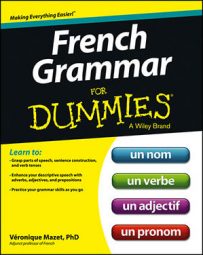The French pronoun en replaces phrases that indicate quantities (of things or people). Quantities can be expressed with numbers, expressions, indefinite articles, and partitive articles:
A number: J’ai trois chats. (I have three cats.)
An expression + de: Il a beaucoup de CDs. (He has a lot of CDs.)
An indefinite article: Nous avons une voiture bleue. (We have a blue car.)
A partitive article: Ils ont de la chance. (They have some luck.)
The word de in an expression of quantity like un peu de (a little bit of) or just a number + noun is replaced by the pronoun en. But don’t lose track of that specific quantity when you are using the pronoun: Eating “a lot of chocolate” is not the same as eating “a little bit of chocolate”!
How do you keep track of the quantity? That’s super easy: Just put the quantity you’re talking about at the end of the sentence, no matter where en is in the sentence.
Here’s how to proceed:
Find the quantity phrase.
For example, in Les athlètes ont beaucoup de médailles. (The athletes have a lot of medals.), the expression of quantity is beaucoup de médailles.
Remove the entire phrase: the expression of quantity (+ de) + noun.
In this example, you’re left with Les athlètes ont.
Replace the phrase with the pronoun en and place the pronoun properly in the sentence — in this sentence, before the conjugated verb.
In this case, you have Les athlètes en ont.
Add the expression of quantity (same one or a new one), without de, at the very end of the sentence.
Here, you wind up with Les athlètes en ont beaucoup. (The athletes have a lot of them.)
Here are a few examples using different expressions of quantity of this type.
Je bois un verre de lait. (I drink a glass of milk.) → J’en bois un verre. (I drink a glass of it.)
Elle a un portable. (She has a cellphone.) → Elle en a un. (She has one [of them].)
Le champion a gagné neuf médailles. (The champion won nine medals.) → Le champion en a gagné neuf. (The champion won nine [of them].)
Note: The indefinite article un (a, an) counts as a specific quantity and has to be taken up as such in the new sentence with en. This fact also applies to the indefinite article une (a) but not to the indefinite article des (some).
This construction is particularly useful when you are asked how many of something you have or want.
— Combien d’animaux est-ce que tu as chez toi? (How many pets do you have?)
— J’en ai trois: un chien, un chat et un poisson rouge. (I have three: a dog, a cat, and a goldfish.)
— Tu bois du lait le matin? (Do you drink any milk in the morning?)
— Oui, j’en bois un verre. (Yes, I drink a glass of it.)

